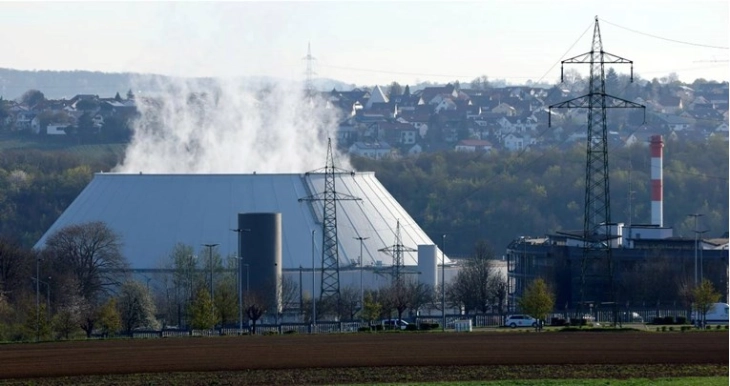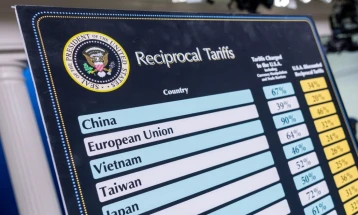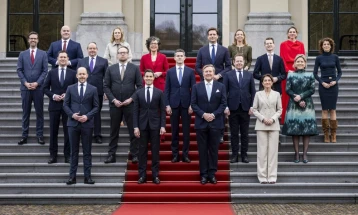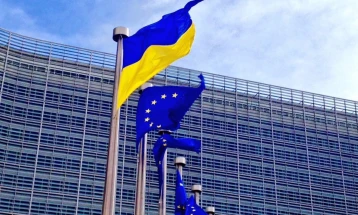German governing parties celebrate country's exit from nuclear power
- Germany's plans to take its final remaining three nuclear power plants off the grid on Saturday was celebrated by environmental activists and politicians, but criticized by pro-business and conservative lawmakers.
- Post By Magdalena Reed
- 11:14, 15 April, 2023

Berlin, 15 April 2023 (dpa/MIA) — Germany's plans to take its final remaining three nuclear power plants off the grid on Saturday was celebrated by environmental activists and politicians, but criticized by pro-business and conservative lawmakers.
Even so, demonstrations by nuclear power opponents were still planned at the power plant locations on Saturday. Greenpeace wanted to demonstrate at the Brandenburg Gate in Berlin.
The move ends the country's use of nuclear energy — and the accompanying politically charged debate on the issue — after more than 60 years.
Two of the three plants should have been shut down at the end of last year, but due to Russia's invasion of Ukraine and an ensuing energy crisis, the government decided to keep them running throughout the winter.
After about 62 years, the three remaining nuclear reactors in Germany — Isar 2 in Bavaria, Emsland in Lower Saxony, and Neckarwestheim 2 in Baden-Württemberg — are expected to be shut down on Saturday, just before midnight.
Greenpeace celebrated the end of nuclear power usage in Germany as a "good day" for climate protection and a "huge success for the anti-nuclear movement of 40 years."
Martin Kaiser, managing director of Greenpeace Germany, said all parties involved should now focus on developing an energy supply that is 100% based on renewable energies. The government must also ensure a safe disposal of the accumulated nuclear waste, which will still be radioactive for millions of years, he said.
The Green Party parliamentary group tweeted that Germany is "finally entering the age of safe and affordable renewable energies," which will secure the energy supply, protect the climate, make Germany independent of autocrats and lay the foundation for a strong economy and good jobs.
The parliamentary group of the Social Democratic Party tweeted: "Nuclear power? And Bye." This was accompanied by a picture of a collapsing nuclear power plant cooling tower.
The pro-business Free Democratic Party (FDP) parliamentary group, on the other hand, made clear on Twitter that is it not happy with the exit.
"We make no secret of the fact that we would have liked to see nuclear power phased out for a limited period of 1 year," the FDP said.
The FDP repeated that it wanted to keep the last three nuclear reactors operational after the shut down, so they could be reactivated as quickly as possible in an emergency.
Opposition conservative politicians were also disappointed. Christian Democratic Union (CDU) chief Friederich Merz called the shutdown a "black day for Germany" – a view echoed by the CDU's Bavarian sister party, the Christian Social Union (CSU).
The CSU in the Bundestag tweeted of "black day for citizens, industry and climate protection in Germany" as a result of the nuclear power plant shutdown.
The CSU noted that a majority of Germans favoured the continued operation but that did not persuade the governing coalition, made up of the SPD, Greens and FDP, to change its mind.







